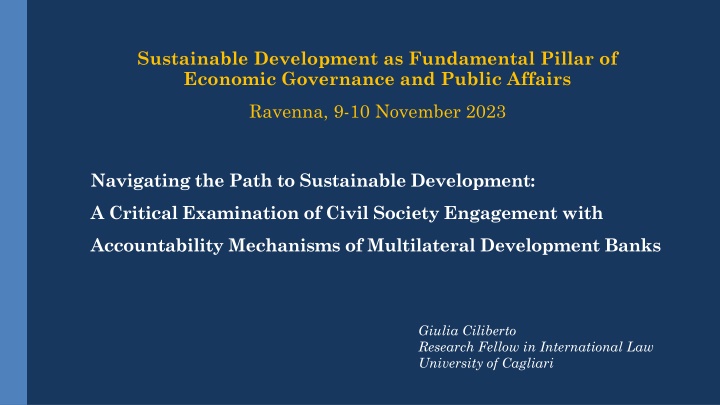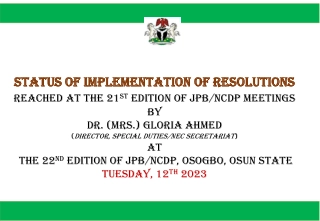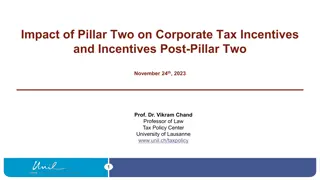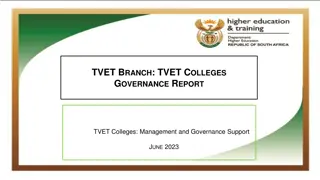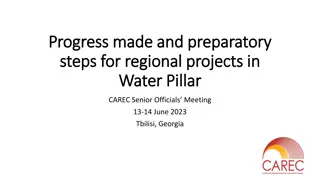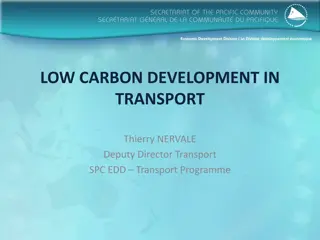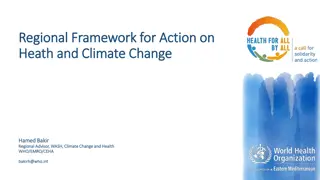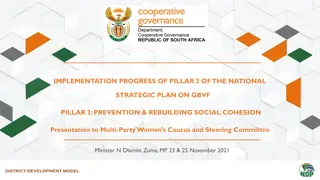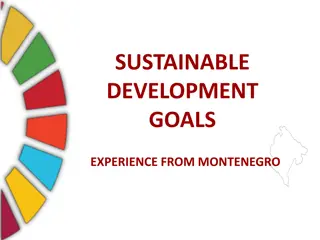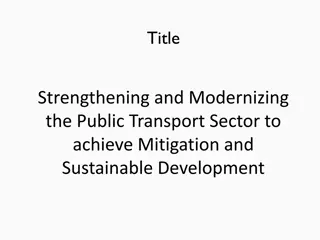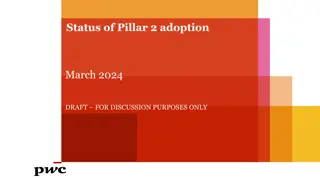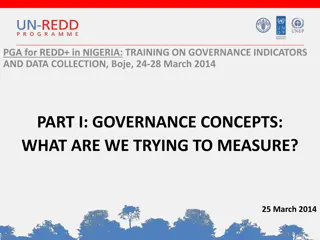Sustainable Development as Fundamental Pillar of Economic Governance and Public Affairs
Navigating the Path to Sustainable Development: A Critical Examination of Civil Society Engagement with Accountability Mechanisms of Multilateral Development Banks. Exploring the importance of public participation in environmental matters at national and international levels, focusing on internal accountability mechanisms and their shortcomings at MDBs.
Download Presentation

Please find below an Image/Link to download the presentation.
The content on the website is provided AS IS for your information and personal use only. It may not be sold, licensed, or shared on other websites without obtaining consent from the author.If you encounter any issues during the download, it is possible that the publisher has removed the file from their server.
You are allowed to download the files provided on this website for personal or commercial use, subject to the condition that they are used lawfully. All files are the property of their respective owners.
The content on the website is provided AS IS for your information and personal use only. It may not be sold, licensed, or shared on other websites without obtaining consent from the author.
E N D
Presentation Transcript
Sustainable Development as Fundamental Pillar of Economic Governance and Public Affairs Ravenna, 9-10 November 2023 Navigating the Path to Sustainable Development: A Critical Examination of Civil Society Engagement with Accountability Mechanisms of Multilateral Development Banks Giulia Ciliberto Research Fellow in International Law University of Cagliari
Public participation in environnemental matters National level: 1. Access to information 2. Participation in decision-making processes 3. Access to administrative and judicial proceedings International level: the case of MDBs Access to information on sponsored projects and ESP Consultation of PAP and stakeholders Internal accountability mechanisms (IAMs) 1. 2. 3.
Internal accountability mechanisms (IAMs) 1980s-1990s 1. Sustainable development 2. Environmental and social impact of sponsored projects 3. The role of civil society 1993: Word Banks Inspection Panel inspiration for other IAMs at MDBs: IFC/MIGA; IAmDB; AfDB; AsDB; ERBD Since 1993: reforms double accountability function: 1. Problem-solving/dispute resolution 2. Compliance review/inspection
IAMs Shortcomings Endogenous factors: 4 phases 1. Eligibility of claims Project North-South Corridor in Georgia sponsored by AsDB and ERBD 2. Problem solving/dispute resolution: asymmetry among parties in the design of the DS model; confidentiality of agreements 3. Compliance review/inspection: the political organ may overturn the IAM s decision to perform an investigation 4. Outcome/monitoring phase: Project Tata Ultra Mega and Jam et al v. IFC case Exogenous shortcoming: risk of retaliation
Conclusion Internal accountability mechanisms at MDBs: step towards involvement if individuals and civil society the implementation of the principle of sustainable development the accountability of MDBs but still shortcomings and room of improvement Reinforcing the concrete effectiveness of the current regime Further reforms (triggered by civil society) Enhancing protection of claimants against possible retaliation
